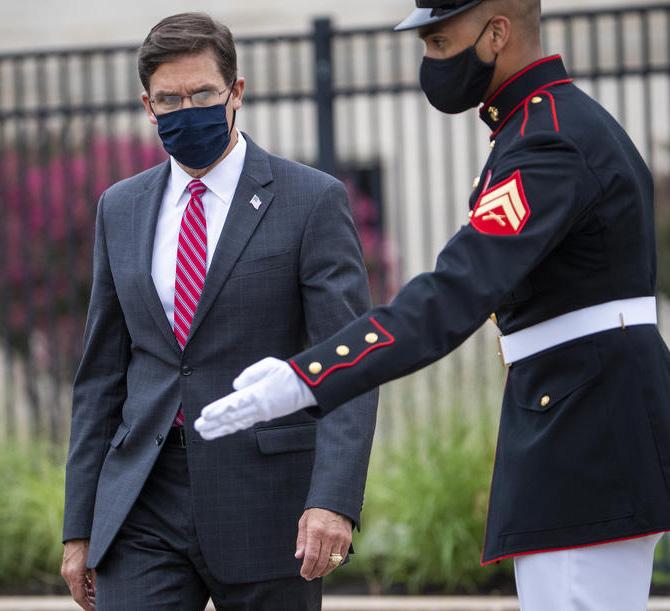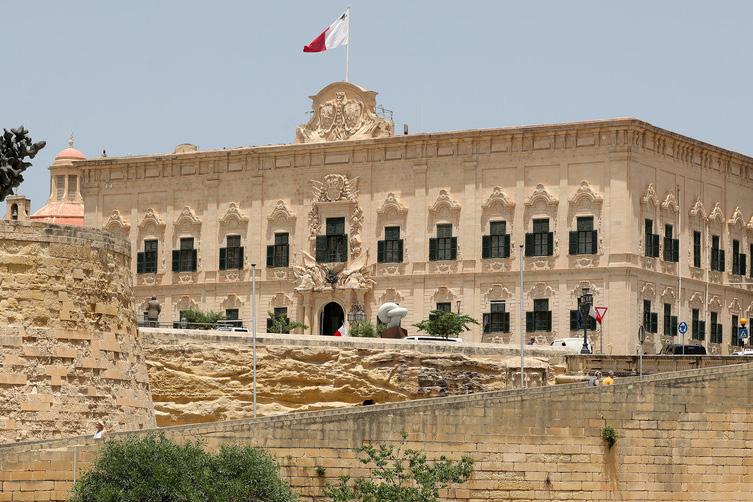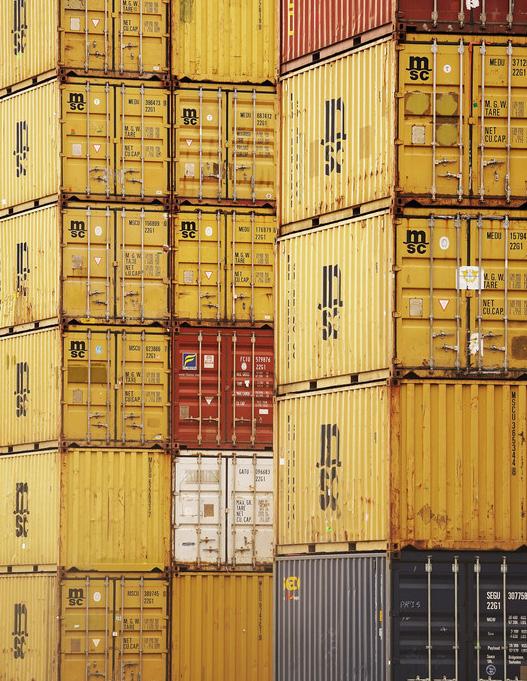
7 minute read
Diplomatique.Expert meets
CorporateDispatchPro
DENISE GRECH Diplomatique.Expert meets...
Malta ‘essential partner’ in combatting global threats US Charge d’Affaires
Malta has recently teamed up with Turkey in an attempt to make Libya stable. According to reports, Malta and Turkey are in talks to develop a collaboration agreement to fight irregular migration. What is the U.S. reaction to this?
Malta’s strategic position in the Mediterranean at the cross-roads between Europe, Africa, and the Middle East, and its membership in the European Union underline Malta’s role as one of our key international partners in finding solutions to issues of global transnational importance, such as weapons proliferation, trafficking in drugs and persons, migration, and protecting our borders. The United States government is closely watching the situation in Libya and we remain engaged with the Maltese on the plight of irregular migrants. In fact, this was a major theme of the discussions during U.S. Secretary of Defense Mark Esper’s recent visit to Malta.
Where are we in terms of the war on terrorism and has the threat from ISIS and al Qaeda diminished?
The United States is working with countries around the world to combat terrorism through multilateral engagement and international organizations.
We continue to build upon the strong alliances the United States has brought together to combat terrorism. Together, with our international partners, we have destroyed ISIS’s physical caliphate

in Iraq and Syria. We have designated Iran’s Islamic Revolutionary Guard Corps, including its Qods Force, as a terrorist organization and we continue to work with partners to pressure Iranian proxy forces, such as Hizballah.
One of our success stories with the Maltese government is the development of the Central Mediterranean Security Initiative (CMSI) workshop, launched in 2018, spearheading a regional dialogue on counter proliferation and export controls of restricted and dual use technologies. We supported the creation and foster the development of the International Institute for Justice and the Rule of Law (IIJ), located here in Malta. The IIJ is a central element of the U.S. commitment to provide rule of law-based programs addressing terrorism and related transnational criminal activity to justice practitioners. We are proud of the success the IIJ team has achieved and we are committed to working with the IIJ and the Maltese government to ensure its continued success here in Malta.

CorporateDispatchPro

In recent days we have seen the hostility between two Mediterranean NATO members - Turkey and Greece - reach a worrying level. What is the American position in view of this tension?
We are concerned that disputes between neighbors will create opportunities for Russia and others to undermine regional cooperation and create friction between the European Union and Turkey. We urge all parties to engage in dialogue, avoid confrontations, exercise restraint, and prevent escalation. The United States is concerned about Russia’s destabilizing influence across NATO’s southern flank and the Eastern Mediterranean and we are committed to working with critical partners to prevent destabilization of the Eastern Mediterranean region.
Regional security is one of the cornerstones of our relationship with the government of Malta and Malta is an essential partner in our common commitment to combat global threats. We are proud of our ongoing collaboration on practical matters, such as enhanced security at ports-of-entry, container transshipment, and training programs for members of the armed forces, customs, and civil protection personnel that keep Malta and the region safe.
You can say that for most of the Trump administration, Malta has been without an American Ambassador. Is this a permanent decision or are there plans to have a new Ambassador once more in the near future?
Our diplomatic representation in Malta is at the highest level – that of an Embassy. We hope to welcome a U.S. Ambassador in the months ahead.


CorporateDispatchPro

The U.S. embassy has been vocal about changes they hope to see regarding the rule of law in Malta, particularly following the murder of Daphne Caruana Galizia in October 2017. What changes are you hoping to see regarding rule of law in Malta?
The United States strongly supports the vital role of a free and independent press around the world and condemns those who would employ violence to intimidate the press into silence. We continue to call for a thorough, transparent, and timely conclusion to the investigation into Daphne Caruana Galizia’s death. Accountability, strong judicial processes, transparency, and convictions are the best ways to support freedom of expression and rule of law, and deter future would-be criminals. It is not too late for Malta to bring all those involved in Daphne Caruana Galizia’s murder to justice in a credible manner.
With regards to other rule of law issues, we launched the Financial Integrity Forum in April 2019, which includes the participation of the Federal Bureau of Investigation (FBI), Treasury, and the State Department’s Bureau of International Narcotics and Law Enforcement Affairs, and joined forces with Malta to counter financial crimes and terrorism finance. In September 2019, our Internal Revenue Service delivered a workshop on Criminal Investigation: Financial Investigation Techniques. These are just a few examples of our support for the Maltese government’s efforts to introduce rule of law reforms.
The FATF will review MONEYVAL’s assessment of Malta and make a decision on whether Malta gets grey listed or not. The U.S. Department of Justice had said that ‘grey-listing is inevitable’ but the previous Chargé d’Affaires said there’s still time to make the necessary changes. Do you think enough has been done? Do you think Malta will be grey-listed?
We value Malta’s partnership and commitment towards combatting money laundering and terrorism financing. These crimes threaten the world’s safety, economic stability, and the integrity of the financial system.

Currently, Malta faces serious challenges in urgently implementing reforms to financial oversight and anti-money laundering procedures to avoid greylisting by the Financial Action Task Force (FATF), following the Council of Europe’s Committee of Experts on the Evaluation of Anti-Money Laundering Measures and Countering Financing of Terrorism (MONEYVAL)’s invitation to report back later this year after it applied its enhanced follow-up procedures in 2019. The MONEYVAL assessment and Financial Action Task Force measures are not a political process but rather rigid analytical processes, designed to protect the integrity of the world financial system.
The Venice Commission outlined clear steps Malta must take to demonstrate sufficient implementation of rule of law. MONEYVAL’s upcoming assessment of Malta’s progress in strengthening their practical application of its measures to combat money laundering and financing terrorism will give an indication of Malta’s success in implementing rule of law reforms.
We appreciate the Maltese government’s efforts so far to implement Venice Commission recommendations, and we responded to its requests for assistance and training to meet FATF requirements. We are partners who have an interest in seeing Malta succeed.

CorporateDispatchPro

The U.S. has made offers to help the Maltese government with solving the murder of journalist Daphne Caruana Galizia. It had also encouraged an impartial investigation into the murder. What do you make of Prime Minister Robert Abela’s decision to grant a one-time deadline extension until December to the public inquiry board looking into Caruana Galizia’s murder?
We welcomed the appointment of a Public Inquiry board, but the public inquiry is ongoing and, therefore, I cannot comment on the issue.
According to the U.S. report on trafficking, the Government of Malta does not fully meet the minimum standards for the elimination of trafficking. What should the government do? Are you happy with new recommendations made by the government regarding human trafficking and prostitution reform?
Malta has made progress in several areas in combating human trafficking, but rule of law challenges, particularly prosecutions and convictions, continue to be a major impediment to achieving Tier 1 status. Broader judicial reforms, as outlined in the recommendations of the Venice Commission, are essential to making this change, which we continue to support. We also focus outreach efforts on labor exploitation, particularly in the construction sector, and integration of irregular migrants. In 2018, we awarded a Julia Taft Refugee Fund grant to KOPIN, which allowed KOPIN to study the incidence of human trafficking in Malta and its impact on refugees. JRS was the recipient of the 2019 and 2020 Julia Taft Refugee Fund for projects to improve access to fair and stable employment for refugees and asylum seekers in Malta, and to enhance autonomy and economic self-sufficiency for refugees and asylum seekers in Malta. We are working with the Migrant Women’s Association Malta (MWAM) on a project to assist female refugees and asylum-seekers who require increased mental health and financial support due to the COVID-19 pandemic.
U.S. CHARGÉ D’AFFAIRES GWENDOLYN S. GREEN





